World News

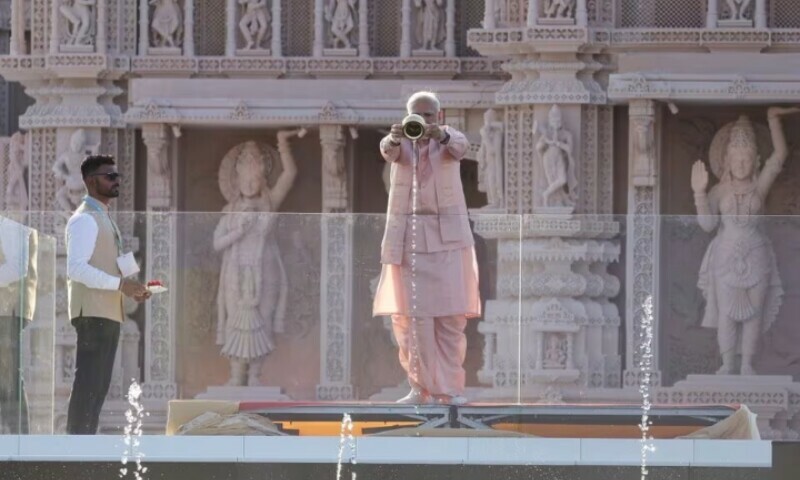
Indian Prime Minister Narendra Modi opened a grand Hindu temple in the United Arab Emirates on Wednesday, capping off a two-day visit to the Muslim nation that is home to around 3.5 million Indians.
A day earlier, tens of thousands of Indians filled a soccer stadium in the capital Abu Dhabi, cheering on Modi who is seeking a rare third term in India’s upcoming general election.
Modi’s visit to one of India’s largest trading partners showed how the Hindu nationalist has deepened New Delhi’s relations with the Middle East.
At home, critics say that since Modi took the prime minister’s office in 2014, religious polarisation has risen and that Indian Muslims, who make up 14 per cent of the 1.42 billion population, are being marginalised.
The opening of the temple in a Muslim country has garnered widespread domestic press coverage in India and follows last month’s opening by Modi of a massive temple in India built on the site of a 16th-century mosque destroyed by a Hindu mob in 1992.
The UAE government gifted the 27 acres in Abu Dhabi where the grand temple was built at a cost of about $95 million by the Hindu BAPS organisation that was founded in Modi’s home state of Gujarat more than a century ago.
Hindu temples have for decades existed in the UAE, a Gulf state whose 1m citizens are a minority in a country of some 10m residents who are the backbone of the workforce.
Accompanied by Hindu religious leaders and monks, Modi offered prayers and performed rituals as he toured the temple in an event that was attended by members of the UAE government, Bollywood actors and the Indian community.
“This temple is a symbol of the shared heritage of humanity. It is a symbol of the mutual love between the Indian and Arab people. It reflects the philosophical connection between India and the UAE,” Modi said to a crowd waving UAE and Indian flags.
UAE Minister of Tolerance Sheikh Nahyan bin Mubarak Al Nahyan, addressing the inauguration ceremony, praised Modi for strengthening relations and said the temple reflected the UAE’s openness to different religions and ethnicities.
Close partners
The opening of the first traditional, stone-carved Hindu temple on the Arabian Peninsula, the birthplace of Islam, is symbolic of the close ties between India and the UAE.
Modi thanked UAE President Sheikh Mohamed bin Zayed al Nahyan, whom he refers to as his brother, for granting permission to build the temple.
India’s relationship with the influential Middle Eastern state, built on more than a century of trade links, has expanded since Modi took office.
The two countries signed a series of agreements during the visit, including a framework accord on developing a sea and rail trade corridor from India, across the Arabian Sea, to the UAE and through Middle Eastern states, including Israel, to Europe.
“This visit is more about consolidating an already very strong legacy in the Middle East,” said Harsh V Pant of the Indian think tank Observer Research Foundation.
The opening of the temple showed how Modi conducts foreign policy on his own terms and has taken the message of a culturally embedded Hinduism in Indian politics overseas, he said.
Modi is widely popular among his Hindu-majority base who see the leader, who has established a strong man image at home and among world leaders, as leading a Hindu re-awakening in India.
Indian Muslims accuse Modi’s right-wing nationalist Bharatiya Janata Party (BJP) of imposing laws interfering with their faith. Modi denies this but the situation has led to sporadic violence between members of the two communities.
The seven emirates of the UAE are represented by the seven spires of the Abu Dhabi temple, which was built with sandstone from India’s Rajasthan and marble from Italy.
Hindu deities are depicted along with ancient civilisations and other religions, including Islam, the only official religion of the Gulf state.
Pujya Brahmavihari Swami, a Hindu religious leader from the temple, told Reuters that the Abu Dhabi temple was a symbol of harmony of all religions.
“This is a place where art is ageless. Culture is borderless and values are timeless. It is founded on universal spiritual values,” he said ahead of its opening.
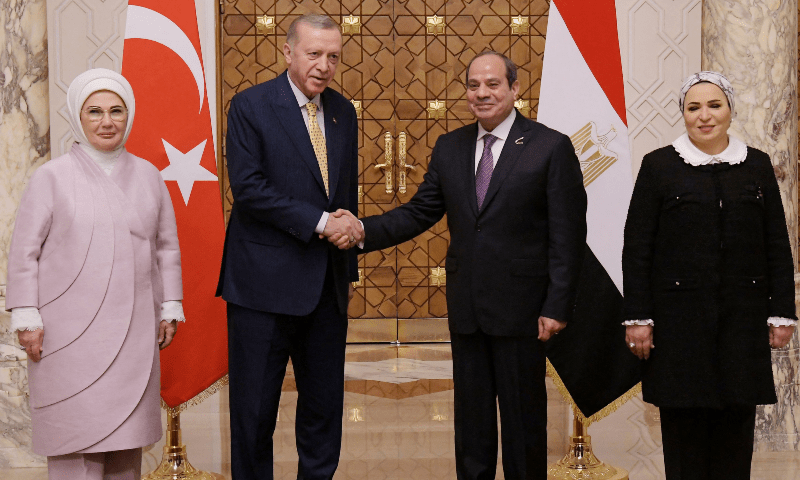
GAZA STRIP: Negotiations to pause the Israeli aggression against Palestinians and free the prisoners held by Hamas headed into a second day in Cairo on Wednesday, as displaced Gazans braced for an expected Israeli assault on their last refuge of Rafah.
A Hamas source disclosed that a delegation was headed to the Egyptian capital to meet Egyptian and Qatari mediators, after Israeli negotiators held talks with the mediators on Tuesday.
Turkish President Recep Tayyip Erdogan, an outspoken critic of Israel’s conduct of the Gaza war, was also landed in Cairo on Wednesday for talks with President Abdel Fattah al-Sisi.
CIA Director William Burns had joined Tuesday’s talks with David Barnea, head of Israel’s Mossad intelligence service, which Egyptian media said had been mostly “positive”.
US National Security Council spokesperson John Kirby described the negotiations as “constructive and moving in the right direction”.
Mediators are racing to secure a pause to the fighting before Israel proceeds with a full-scale ground incursion into the Gaza Strip’s far-southern city of Rafah, where more than 1.4 million Palestinians are trapped.
UN humanitarian chief Martin Griffiths said any military operation “could lead to a slaughter”. The potential for mass civilian casualties has triggered urgent appeals, even from close allies, for Israel to hold off sending troops into the last refuge of Palestinians.
Israeli strikes kill 104 more
As the truce talks go on in Cairo, the Israeli military has kept up its bombardment of Gaza, with strikes on both Rafah and the southern city of Khan Yunis, where there has been heavy fighting.
The Palestinian health ministry said on Wednesday that 104 people, mostly civilians, had been killed overnight.
Over the past four months, at least 28,576 people, mostly women and children, have been killed by Israeli forces, according to the latest health ministry figures.
Around 130 of an estimated 250 people detained by Hamas during the attack are believed to remain in Gaza, as Israel claims 29 of them are presumed dead.
On Wednesday, around 100 representatives of the Gaza prisoners flew to The Hague to file a “crimes against humanity” charge against Hamas at the International Criminal Court.
Ahead of the Cairo talks, the Israeli group sent the Mossad chief a plea saying the delegation must “not return without a deal”. When asked by reporters whether he believes the Americans among the prisoners were still alive, National Security Council spokesperson Kirby said: “We don’t have any information to the contrary.”
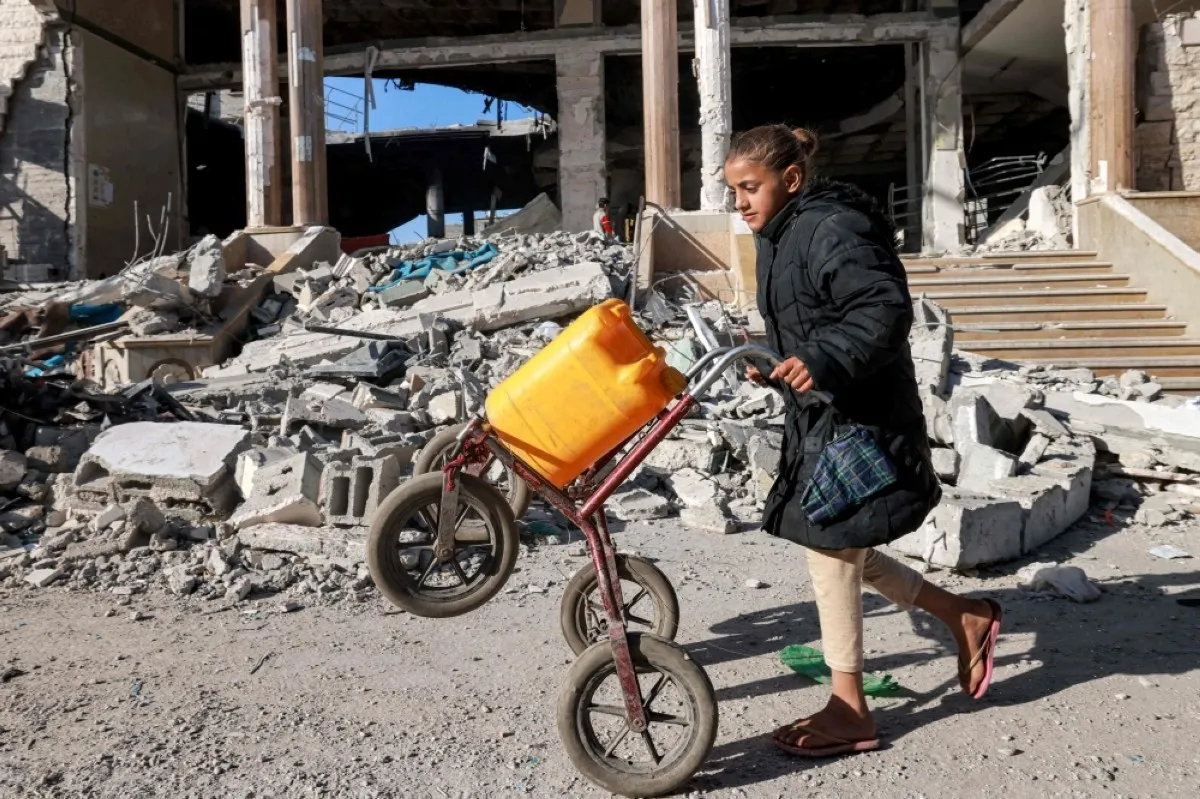
GAZA: Negotiations to pause the Zionist-Hamas war headed into a second day in Cairo on Wednesday, as the Zionist entity launched a series of deadly strikes on Lebanon, stoking fears of a wider conflict. Mediators in Egypt were hoping to secure a ceasefire that would see more captives released in exchange for Palestinian prisoners, as the Zionist entity prepares for a full-scale ground incursion into the Gaza Strip’s crowded far-southern city of Rafah.
As talks continued in Cairo, the Zionist military has kept up its bombardment of Gaza, with strikes on both Rafah and the southern city of Khan Yunis, where there has been heavy fighting. The health ministry in the territory said Wednesday that 104 people had been killed overnight. At least 28,576 people, mostly women and children, have been killed by the Zionist entity in Gaza, according to the latest health ministry figures.
A Hamas source told AFP that a delegation was headed to Cairo to meet Egyptian and Qatari mediators, after Zionist negotiators held talks with the mediators on Tuesday. Palestinian President Mahmoud Abbas urged Hamas to “quickly complete a prisoner deal, to spare our Palestinian people from the calamity of another catastrophic event”. CIA director William Burns had joined Tuesday’s talks with David Barnea, head of the Zionist entity’s Mossad intelligence service, which Egyptian media said had been mostly “positive”. US National Security Council spokesperson John Kirby described the negotiations as “constructive and moving in the right direction”.
Turkish President Recep Tayyip Erdogan, who was in Cairo Wednesday for talks with President Abdel Fattah Al-Sisi, criticized the Zionist entity for “its policy of occupation, destruction and massacre”. With regional tensions high, the Zionist entity launched strikes on Lebanon hours after fire from Lebanon wounded seven people in the Zionist entity, according to the Magen David Adom emergency service.
The strikes in south Lebanon killed four civilians including two children and wounded nine other people, a Lebanese security source told AFP, speaking on condition of anonymity. Since the outbreak of the Hamas-Zionist war on Oct 7, more than 240 people have been killed in Lebanon, most of them Hezbollah fighters but also including over 30 civilians. Hezbollah has traded near-daily fire with Zionist troops since the outbreak of the Gaza war, with tens of thousands displaced on both sides.
The potential for mass civilian casualties in Rafah triggered urgent appeals — including from close allies — for the Zionist entity to hold off sending troops into the last major population center they have yet to enter in the conflict. Rafah, where more than 1.4 million Palestinians are trapped, is also the main entry point for desperately needed relief supplies. UN humanitarian chief Martin Griffiths said any military operation “could lead to a slaughter”.
Terrified civilians have been locked in a desperate search for safety. “My three children were injured, where can I go?” Dana Abu Chaaban asked at the city’s border crossing with Egypt, where she was hoping to be allowed across with her bandaged-up sons. Pressure has grown on Egypt to open its border to Palestinian civilians, hundreds of thousands of whom have sought shelter in makeshift camps by the border where they face outbreaks of disease and a scarcity of food and water. “For 100 days we have entered the crossing and begged them to let us cross, or to do anything to help us,” Habiba Nakhala said.
US President Joe Biden has said civilians in Rafah “need to be protected”, calling them “exposed and vulnerable”. But Zionist Prime Minister Benjamin Netanyahu has insisted “complete victory” cannot be achieved without the elimination of Hamas’ last battalions in Rafah.
Fears were also growing over southern Gaza’s Nasser hospital, where a nurse said snipers were killing people, sewage had flooded the emergency room and drinking water had run out. Mohammed Al-Astal said the facility had been “besieged” for a month, with no food or drinking water left. “At night, tanks opened heavy fire on the hospital and snipers on the roofs of buildings surrounding Nasser hospital opened fire and killed three displaced people,” the 39-year-old nurse said.
The World Health Organization said it had been unable to contact the besieged hospital for weeks. Rik Peeperkorn, the UN agency’s representative in the Palestinian territories, said requests to assess and re-stock the hospital with medical supplies had been denied, adding that “without support... this hospital might become non-functional too”. Peeperkorn said Nasser was “a key hospital for all of Gaza. We cannot lose that hospital... (it) is critically important”.
Some Gazans in Rafah were already packing up their belongings in readiness to move but others vowed to stay put, fearing even greater misery and starvation in the bombed-out hometowns they fled. Ahlam Abu Assi said she “would rather die” in Rafah than return to the famine-like conditions facing relatives who stayed in Gaza City. “My son and his children have nothing to eat. They cook a handful of rice and save it for the next day,” she said. “My grandson cries from hunger.”– AFP
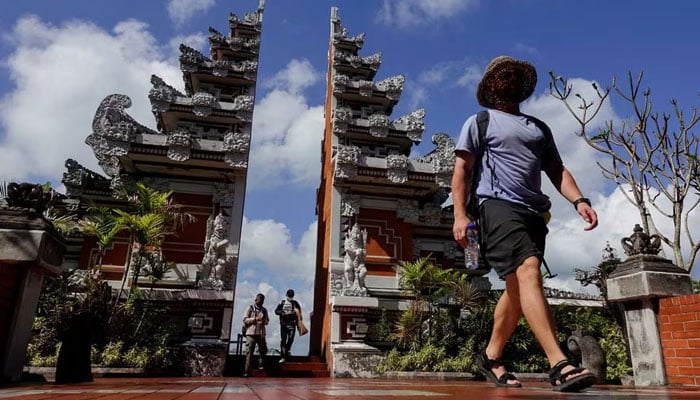
Foreign tourists arriving in Bali will need to pay the fee electronically through the "Love Bali" online portal
Are you considering a getaway to Bali, the enchanting Indonesian paradise? Well, a new development might impact your travel plans.
Bali has recently introduced a 150,000 rupiah ($10) tax on incoming tourists, a move aimed at preserving the unique cultural and environmental treasures that earned the island its moniker, the "Island of Gods."
"Why this levy?" you may wonder.
Bali's acting governor, Sang Made Mahendra Jaya, explains that it's a strategic effort to safeguard the island's rich cultural tapestry and its pristine environment. In his words, "This levy is aimed at the protection of the culture and the environment in Bali."
To comply with this new regulation, foreign tourists arriving in Bali will need to pay the fee electronically through the "Love Bali" online portal. This levy is applicable to international tourists and those entering from other parts of Indonesia. However, domestic Indonesian tourists are exempt from this financial addition to their travel expenses.
Bali, known for its picturesque beaches and vibrant cultural scene, has been grappling with the delicate balance between preserving its allure and managing the influx of tourists. With nearly 4.8 million visitors between January and November last year, the island is leveraging its popularity to bolster its financial resources.
The move to impose a tax on tourists also comes in the wake of the island's commitment to upholding cultural respect. Recent incidents, including tourists posing inappropriately at sacred sites and engaging in disrespectful behavior, have prompted local authorities to take action. Last year, in response to these challenges, the local government published an etiquette guide for tourists.
As the island rebounds from the impact of the Covid-19 pandemic, Bali is determined to ensure that visitors contribute not only to its economic prosperity but also to the preservation of its unique identity.
So, if you're planning a trip to Bali, be prepared to embrace this new tax as a small but significant step towards the continued protection of the "Island of Gods."
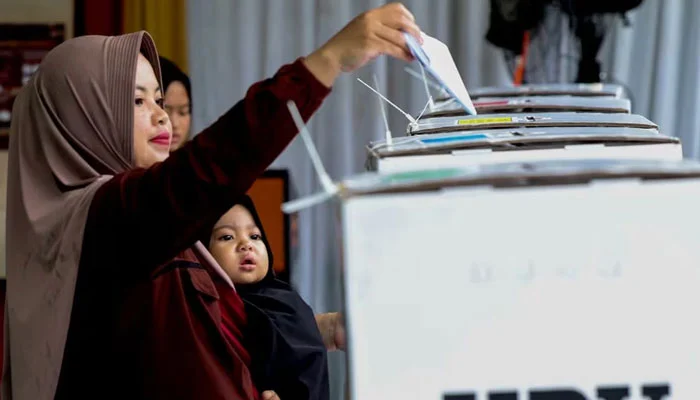
To win outright, a candidate needs over 50% of votes and 20% of ballot in half of country's provinces
Surveys show commanding lead for Prabowo Subianto.
Polls due to close at 0600 GMT, some flood disruption.
Initial indications of result expected to emerge later today.
Indonesians on Wednesday participated in an election to succeed President Joko Widodo, whose influence could determine the future of the world's third-largest democracy, across the Southeast Asian archipelago.
The world's largest single-day election, involving nearly 259,000 candidates contesting 20,600 posts across 17,000 islands, is focusing on the presidency and the fate of Widodo's ambitious agenda after a decade in charge of the $1.3 trillion economy, Reuters reported.
The Indonesian presidential race to replace Widodo, also known as Jokowi, involves ex-governors Ganjar Pranowo and Anies Baswedan, and frontrunner Prabowo Subianto, a former special forces commander feared in the 1990s.
Two recent surveys predict that Prabowo would win the majority of votes and avoid a second round, with 51.8% and 51.9% support.
To win outright, a candidate needs over 50% of votes and 20% of the ballot in half of the country's provinces.
Novan Maradona, 42, an entrepreneur, said after voting in central Jakarta he wanted a candidate who would continue policies currently in place.
"If we start over from zero, it will take time," he said.
Voters have a six-hour window to cast ballots. Indonesia has three time zones and polling stations across the country are now open, with voting in western areas due to close by 0600 GMT.
Polling got off to a slow start in Jakarta, with big thunderstorms causing flooding in parts of the capital.
The extent of delays was not clear nor whether it would impact voter turnout but Jakarta's disaster management agency shared photographs of a flooded polling station as officials moved voting materials to a safer location.
Initial indications of the result are expected to emerge later on Wednesday, based on publicly counted votes from a sampling of polling stations across the country. In previous elections, the unofficial counts tabulated by reputable companies have proved to be accurate.

President Biden made his TikTok debut with a Super Bowl-themed question-and-answer video, reflecting a potential effort to engage with the youth vote in his reelection campaign, The Hill reported.
The 30-second clip, captioned "lol hey guys," shows Biden watching the Super Bowl at home, answering rapid-fire questions about the game and playfully refusing to pick sides.
Notably, he pledged allegiance to the Philadelphia Eagles, the first lady's team, and humorously chose himself when asked to pick between him and former President Donald Trump.
While more than a dozen Democratic lawmakers use TikTok, the platform has faced scrutiny from Republicans due to concerns about its parent company's ties to the Chinese government.
Biden's direct engagement on TikTok signals a strategic move to connect with the app's substantially younger audience. The platform has been leveraged by the White House previously for spreading messages on COVID-19 and the war in Ukraine, making Biden's foray into TikTok a potential avenue for reaching and influencing younger voters, a significant demographic on the platform.
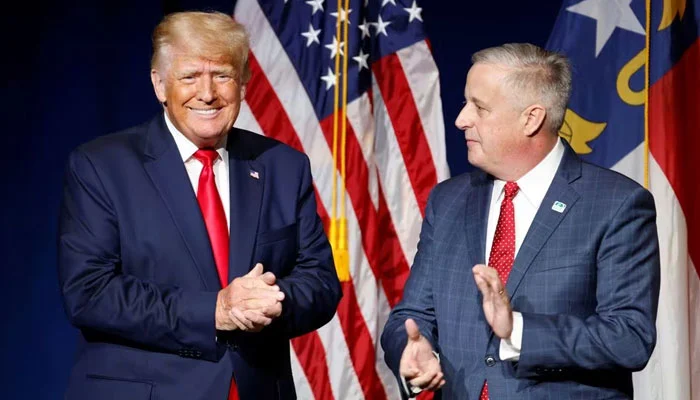
Trump has also asked one of his campaign's senior advisors, Chris LaCivita, to assume role of COO at RNC
Former United States president Donald Trump on Monday night announced endorsements for the Republican National Committee (RNC), with Michael Whatley as chairman and his daughter-in-law Lara Trump as co-chair, CBS News reported.
Trump’s endorsement of Whatley, who is the chairman of the North Carolina Republican Party, and his daughter-in-law who will be serving a leadership position in the party for the first time, is expected to shake up the current leadership of the GOP.
The 77-year-old Republican presidential candidate also announced that he asked one of his campaign's senior advisors, Chris LaCivita, to move over to the RNC to assume the role of Chief Operating Officer.
"This group of three is highly talented, battle-tested, and smart," Trump wrote in a statement Monday night. "They have my complete and total endorsement to lead the Republican National Committee."
The RNC's chair, Ronna McDaniel, won a fourth term as chair in January and has been replaced due to low fundraising numbers and underperformance in recent national elections, despite having been in office since 2017.
In 2023, the RNC had its worst fundraising year in a decade, and it entered 2024 with just $8 million in its coffers, its lowest cash on hand since 2014, according to Federal Election Commission (FEC) reports.
Last week, McDaniel met with Trump in Mar-a-Lago where she told him she's a "team player", expressing her commitment to the party's best interests, including stepping down as chair.
Trump announced he would decide the RNC leadership's future after the South Carolina primary on February 24.
Whatley, who currently serves as the general counsel at the RNC, has echoed Trump's unproven claims of fraud following the 2020 election, stating that "we do know there was massive fraud".
Lara, married to Trump's second son Eric, was prominently featured on Trump's campaign trail and was floated as a North Carolina Senate candidate for the 2022 midterm cycle.
LaCivita, a seasoned Republican strategist, has worked on various campaigns, including Rand Paul's 2016 presidential run and the pro-Trump super political action committee Make America Great Again Inc., before joining Trump's re-election campaign in 2022.


